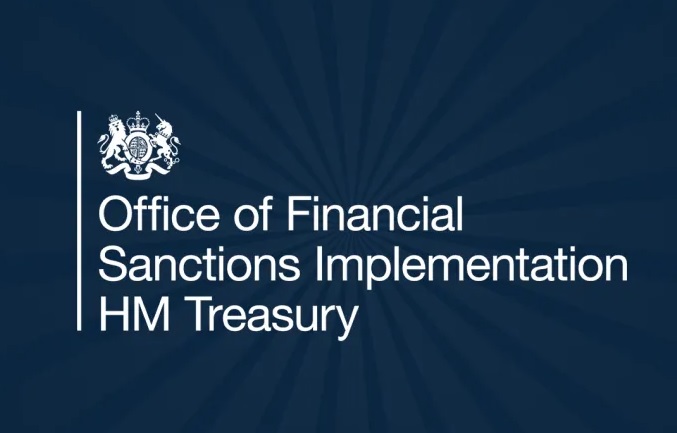Shifting paradigms at a time of great change

As we move toward the end 2025, the world is witnessing profound changes to the underpinnings and application of export controls and sanctions – radical departures from previous administrations’ use of legislation and priorities – while global security issues remain heightened and urgent.
More than ever, developments in trade and sanctions compliance have brought new and often business-critical challenges for Trade Compliance Professionals and their Advisors to respond to and manage.
It is against this background that WorldECR hosts its annual Export Controls and Sanctions Forum. There is much to discuss.
Join fellow trade professionals at the WorldECR Forum as we consider the key issues and themes of the day, including:
- Trending EU and UK export control enforcement
- Where next for EU sanctions programmes?
- The Trump administration’s use of IEEPA to justify tariff hikes on nations including partners and allies (now under challenge)
- Iran: with Snapback triggered – what’s next?
- AI: latest on regulators’ attempts to control it (and its use as a compliance helpmate)
- China-US relations – through the prism of export controls and sanctions
- The latest with AUKUS (creating commercial opportunities through skilful use of export controls)
- Maritime sanctions: with the sanctions against Russia largely targeting its ability to ship oil – what are the latest developments and red flags?
As has become established practice, this year’s Forum brings together government, industry, policy and legal private practice, to lead the trade compliance debate.
Networking
As in past years, you can enjoy an optional dinner on the first evening of the Forum, following a networking drinks reception. To date, this relaxed and informal dinner for speakers, panelists and delegates, held in a local restaurant, has proven a great success. It is optional – there is an additional charge – but it is always a fun end to a long day and a great opportunity to build new contacts.
You’ll find all the registration information at the end of this document (or go to https://www.worldecr.com/forums/london/), but if you do have any questions please don’t hesitate to contact my colleague Mark at mark.cusick@worldecr.com
We look forward to you joining the discussion in London in November.
Tom Blass
Editor, WorldECR
Keynote: Daniel Drake, Deputy Director, Office of Financial Sanctions Implementation (OFSI)

We are delighted that Daniel Drake, Deputy Director of OFSI will be giving a keynote presentation on OFSI’s view on how businesses should set their compliance priorities and key takeaways from enforcement actions – setting UK sanctions into the wider picture of international sanctions and financial crime regulation.
EU and UK export control enforcement comes of age


Jason Hungerford, partner, Mayer Brown (London)
Edouard Gergondet, partner, Mayer Brown (Paris)
Collectively, EU member states as well as the UK were once seen as laggards in export control enforcement – certainly when compared with the U.S.A. But, increasingly — if not always consistently — the EU and UK enforcement agencies are stepping up to the plate, no more so than against the backdrop of Russia’s ongoing aggression in Ukraine, and sensitivities around China.
This change of focus and intent provokes many questions: How are violations being investigated and prosecuted? What kinds of violations do agencies have in their sights? Can we predict trends in enforcement and penalties? Is European enforcement action finally finding a level playing field?
These are among the key questions explored by Jason Hungerford and Edouard Gergondet in this session.
The future of defence is dual-use!


Tracy Gronewold, Director of Global Trade Compliance, Hillspire
Maria Shagina, Fellow, International Institute for Strategic Studies (IISS)
Traditional export control regimes distinguish between controls on military USML goods subject in the U.S. to ITAR, and dual-use CCL goods subject to the EAR. But recent conflicts have revealed critical flaws in many traditional defense platforms. They are too big, too slow, and too expensive. Methods of waging conflict are changing, and new, differently controlled technologies are emerging: Artificial Intelligence (running on advanced semiconductors); tiny, attritable drones; and commercial software.
At a time when common household tools and parts have found increasing use on the battlefield and regulators take steps to extend controls on such, Tracy Gronewold and Maria Shagina ask, “Is the future of defense dual-use?” It’s a provocative question — here unpacked!
Acts of Emergency? Potential new frontiers in national security legislation

Barbara Linney, Partner, Baker Hostetler
By using the International Economic Emergency Powers Act as a justification for the imposition of tariffs, Donald Trump radically redefined perceptions of IEEPA, its scope and its application.
Likewise, recent comments by U.S. Treasury Secretary Scott Bessent suggest that the administration might be considering tariff payments in lieu of export control authorizations in some cases. These are not uncontroversial developments — IEEPA’s new application is still being challenged in the courts. What comes next? (is the question, amongst others, posed by Barbara Linney in her presentation.)
Holding it together: Brussels, sanctions and the ‘bloc’


Dr Gerd Schwendinger, Partner, GvW Graf von Westphalen (Hamburg/Brussels)
Tanja Galander, Partner, GvW Graf von Westphalen (Berlin)
Russia’s invasion of Ukraine has been Brussels’ prime consideration since 2022, and in response the European Union has imposed unprecedented sanctions (18 packages as at writing time) on Moscow. In doing so, the Commission has sought to centralize sanctions policy and practice across the bloc, imposing new thresholds and expectations for enforcement and penalties, and extending its authority to third-country subsidiaries of EU companies — with long-term repercussions for sanctions compliance. And while the Russia sanctions regime has dominated the compliance agenda, other programs also, including the return of the Iran sanctions, triggered by the JCPOA “snapback”, and the relaxation of the Syria sanctions regime, have long-term repercussions for compliance.
In this session, Dr Gerd Schwendinger and Tanja Galander review the sanctions progress to date and look to the horizon for the EU’s possible next steps and their impact on international business and trade compliance.
Above and below the waves: military export control developments in Europe – AUKUS and beyond



Aline Doussin, Partner, Hogan Lovells LLP
Eva Monard, Partner, Hogan Lovells LLP
Arthur Bottles-Browne, Export Control Senior Manager, BAE Systems
Evolving strategic threats call for new commensurate and appropriate responses in military export controls – a shifting terrain for contractors in the defence and related supply chains.
This panel, sharing perspectives from industry and private practice, explores how ‘Europe’ – both the United Kingdom and the European Union – is responding to the new security profiles that it faces, with updates on hot-button topics including:
- AUKUS licensing;
- Easing of intra-EU military export licensing; and
- Approaches to the sale of non-military products for military end uses.
This panel addresses the question: Where are the compliance challenges, and where are the opportunities? – and will resonate with exporters of both military and sensitive dual-use goods.
Courtroom dramas: how case-law shapes the scope of UK sanctions

Maya Lester KC, Brick Court Chambers
UK sanctions legislation has created a new (and rapidly evolving) category of risk for cross-border business transactions. But it is often in the courtroom, that an understanding of the interpretation of sanctions, including their scope, the intention of UK sanctions legislation, the legality of designations and the reasoning behind them, emerge – not only in challenges to designations but also in disputes between counterparties in which sanctions are a factor.
In her presentation, leading sanctions barrister Maya Lester KC sets out the role of the courts in interpreting sanctions, and key case-law shaping the way that they should be understood – in the context of a ratcheting up of sanctions against Russia and Belarus, relaxation of Syria sanctions, and the recent resumption of sanctions against Iran following the ‘snapback’ triggered by the E3.
US enforcement: valuable lessons for UK and international companies

Jenna Glass, Director, Indirect Tax, KPMG LLP
Each enforcement action tells a unique story — and each can be a goldmine of compliance learning for businesses. In this session, Jenna Glass takes stock of the big-ticket enforcement actions in 2025 (such as the OFAC settlements with GVA Capital, Unicat, and Interactive Brokers, and BIS’s agreement with Cadence), peeling away the layers to reveal key takeaways, and considering how they can be applied to daily compliance best-practice.
Lateral thinking: managing the new export control landscape


Karla Haynes, VP and Deputy General Counsel for Trade Compliance, Cisco Systems, Inc.
Claire Rivington-Kuhns, Regional Export Legal Counsel, EMEA, Google
Against a backdrop of new geopolitical pressures and global power competition, the primacy of the multilateral export control regimes is being overtaken by new, bilateral and plurilateral agreements on technology sharing – and countries making new additions to their export control lists that exceed the requirements of the Wassenaar Arrangement.
This poses new challenges for technology supply chains, especially, demanding greater attention to national requirements and control lists. So, how should trade compliance teams operationalize overlapping requirements in this new era? This is the question that Karla Haynes, VP and Deputy General Counsel for Trade Compliance at Cisco Systems and Claire Rivington-Kuhns, Regional Export Legal Counsel, EMEA, at Google, will consider.
Banking on change: How FIs are responding to developments in sanctions


Holly O’Callaghan, Manager Economic Crime Policy & External Engagement, Santander UK
Louie Vargas, Founder, Network of Financial Crime Prevention
Financial institutions are at the frontline of economic crime and sanctions, with responsibilities not only to comply with sanctions, but to detect and report breaches in a way that exceeds the obligations of other, non-regulated industries.
In this session, leading FI compliance professionals, Holly O’Callaghan and Louie Vargas, share experience and best practice on a range of current sanctions challenges, including circumvention and evasion, heightened knowledge expectations regarding export controls and critical goods, crypto currencies – and evolving geopolitical situations. Panellists will also address how FIs take into account the client impact of their own compliance policies and procedures.
This is a must-attend session with relevance for all sectors.
Communicating compliance


Keith Huffman, Chief Legal Counsel, Export Control (US) and Head of Export Control Innovation team SAP,
Paul Coady, Principal, Compliance LnD
When events occur that have major implications for sanctions and trade controls, it is imperative that there is common company-wide understanding of their significance — communicated both internally and to stakeholders.
Communication failures can lead to reputational damage, poor compliance policies and mixed messaging to customers and investors – and yet, though critical, this is an often-overlooked area of compliance.
Drawing on their extensive experience and on case-studies and hypotheticals, Keith Huffman and Paul Coady will set out the key lines of communication, and organizational responsibility required when dealing with major change and developments.
Calibrating compliance: A World Economic Forum perspective




Kimberley Botwright, Deputy Head, Centre for Regions, Trade and Geopolitics, World Economic Forum
Aaron Dunne, VP, Head of the Global Trade Law Office, DHL
Claudia Buysing Damsté, Partner, PwC, International Trade
Eva Lakova, Director, PwC, International Trade
Today’s compliance professionals are under no illusions as to the complexity of the trade control challenges posed by technology, regulation and shifts in geopolitical mood music. But how should compliance be calibrated commensurate with an organization’s size, sector and footprint?
This panel discussion draws on extensive research undertaken by the World Economic Forum (to which Aaron Dunne and PwC have contributed) culminating in an influential September-published report’ and invites delegates to share thoughts on fit-for purpose compliance against a backdrop of change.
Maritime sanctions, the oil price cap and the shadow fleet



Gonzalo Saiz, Research Fellow at the Centre for Finance and Security (CFS) at RUSI
Michelle Wiese Bockmann, Senior Maritime Intelligence Analyst, Windward
Lourdes Catrain, Partner, Hogan Lovells LLP
Maritime or shipping sanctions – and critically, the oil price cap – are a key plank of the G7’s efforts to reduce Russia’s revenue from its energy resources, and thus its ability to fund its war on Ukraine.
The reach of the sanctions extends well beyond the shipping industry per se to associated sectors, in particular energy, insurance and finance.
Drawing on research by RUSI’s Maritime Sanctions Task Force, this session outlines they key components of the G7 sanctions programme, sanctions ‘touch-points’, and operational recommendations as the UK and EU continue to tighten their grip on the ‘shadow fleet’ – undocumented, often unseaworthy and under-insured vessels used by Russia to transport oil.
Panellists will also explore evolving red flags and circumvention dangers, together with suggestions for policy and industry best practice.
Compliance screening: Keeping up with the Affiliates


Dr. Mereke Sterl-van Garderen, Product Manager, AEB
Gem Conn, VP, Data Strategy, Dow Jones Risk
Screening remains at the bedrock of good compliance, but guidance, best practice and priorities reflecting emerging sanctions threats and evolving lists continually change.
In this session, AEB’s Mereke Sterl-van Garderen and Dow Jones’ Gem Conn address screening challenges, including recent and prospective additions to sanctions lists and compliance with the new BIS Affiliates Rule.
Mereke and Gem will also describe the scope of available data sets, and the parameters of AI as a screening/compliance helpmate.
Sponsors:
Additional presentations and breakout sessions to be announced.
Date:
19-20 November 2025
Venue:
The offices of Dow Jones,
The News Building, 1 London Bridge Street
London SE1 9GF
Individual registration fees
- For delegates from industry/academia/government: £495 + VAT @ 20% = £594
- For delegates from legal/professional/consulting firms: £995 + VAT @ 20% = £1194
With optional dinner at the end of day 1
- For delegates from industry/academia/government: £555 + VAT @ 20% = £666
- For delegates from legal/professional/consulting firms: £1055 + VAT @ 20% = £1266
Registration includes light breakfast (both days), lunch day 1 and networking drinks reception following sessions on day 1.
An optional dinner (costs £60 + VAT) at a local restaurant will follow the networking drinks reception.
Terms and conditions
Please note, by registering for this event you accept the terms and conditions below.
Registration Fee
Your fee includes the attendance at both days of the conference; programme materials; and stated refreshments and access to networking receptions.
Registration policy
Delegates may not ‘share’ a registration without the organiser’s authorisation.
Payment policy
Payment must be received in full by the conference date. ‘Additional delegate’ prices are only available to delegates from the same organisation as the original full-fee delegate.
Cancellations and Refunds
You must notify the conference organiser 48 hours before the conference if you wish to change the delegate.
If you wish to cancel your registration, you can do so incurring the following charges:
Cancellation more than 28 days before the event – full refund less 33% admin fee.
Cancellation between 27 and 6 days before the event – full refund less 50% admin fee.
Cancellation between 5 days before and the day of the event – no refund.
Change of venue
The organisers reserve the right to change the venue should attendance numbers so demand.
Change of speaker and presentation
The organisers reserve the right to change speakers and/or presentations.







